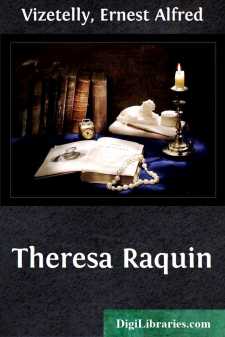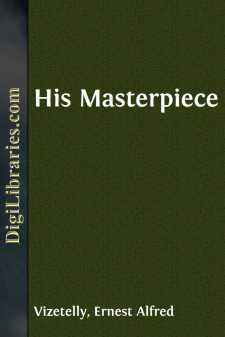Categories
- Antiques & Collectibles 13
- Architecture 36
- Art 48
- Bibles 22
- Biography & Autobiography 813
- Body, Mind & Spirit 142
- Business & Economics 28
- Children's Books 16
- Children's Fiction 13
- Computers 4
- Cooking 94
- Crafts & Hobbies 4
- Drama 346
- Education 46
- Family & Relationships 57
- Fiction 11829
- Games 19
- Gardening 17
- Health & Fitness 34
- History 1377
- House & Home 1
- Humor 147
- Juvenile Fiction 1873
- Juvenile Nonfiction 202
- Language Arts & Disciplines 88
- Law 16
- Literary Collections 686
- Literary Criticism 179
- Mathematics 13
- Medical 41
- Music 40
- Nature 179
- Non-Classifiable 1768
- Performing Arts 7
- Periodicals 1453
- Philosophy 64
- Photography 2
- Poetry 896
- Political Science 203
- Psychology 42
- Reference 154
- Religion 513
- Science 126
- Self-Help 84
- Social Science 81
- Sports & Recreation 34
- Study Aids 3
- Technology & Engineering 59
- Transportation 23
- Travel 463
- True Crime 29
With Zola in England
Description:
Excerpt
I
ZOLA LEAVES FRANCE
From the latter part of the month of July 1898, down to the end of the ensuing August, a frequent heading to newspaper telegrams and paragraphs was the query, 'Where is Zola?' The wildest suppositions concerning the eminent novelist's whereabouts were indulged in and the most contradictory reports were circulated. It was on July 18 that M. Zola was tried by default at Versailles and sentenced to twelve months' imprisonment on the charge of having libelled, in his letter 'J'accuse,' the military tribunal which had acquitted Commandant Esterhazy. On the evening of the 19th his disappearance was signalled by various telegrams from Paris. Most of these asserted that he had gone on a tour to Norway, a course which the 'Daily News' correspondent declared to be very sensible on M. Zola's part, given the tropical heat which then prevailed in the French metropolis.
On the 20th, however, the telegrams gave out that Zola had left Paris on the previous evening by the 8.35 express for Lucerne, being accompanied by his wife and her maid. Later, the same day, appeared a graphic account of how he had dined at a Paris restaurant and thence despatched a waiter to the Eastern Railway Station to procure tickets for himself and a friend. The very numbers of these tickets were given!
Yet a further telegram asserted that he had been recognised by a fellow-passenger, had left the train before reaching the Swiss frontier, and had gaily continued his journey on a bicycle. But another newspaper correspondent treated this account as pure invention, and pledged his word that M. Zola had gone to Holland by way of Brussels.
On July 21 his destination was again alleged to be Norway; but—so desperate were the efforts made to reconcile all the conflicting rumours—his route was said to lie through Switzerland, Luxemburg, and the Netherlands. His wife (so the papers reported) was with him, and they were bicycling up hill and down dale through the aforenamed countries. Two days later it was declared that he had actually been recognised at a cafe in Brussels whence he had fled in consequence of the threats of the customers, who were enraged 'by the presence of such a traitor.' Then he repaired to Antwerp, where he was also recognised, and where he promptly embarked on board a steamer bound for Christiania.
However, on July 25, the 'Petit Journal' authoritatively asserted that all the reports hitherto published were erroneous. M. Zola, said the Paris print, was simply hiding in the suburbs of Paris, hoping to reach Le Havre by night and thence sail for Southampton. But fortunately the Prefecture of Police was acquainted with his plans, and at the first movement he might make he would be arrested.
That same morning our own 'Daily Chronicle' announced M. Zola's presence at a London hotel, and on the following day the 'Morning Leader' was in a position to state that the hotel in question was the Grosvenor. Both 'Chronicle' and 'Leader' were right; but as I had received pressing instructions to contradict all rumours of M....











